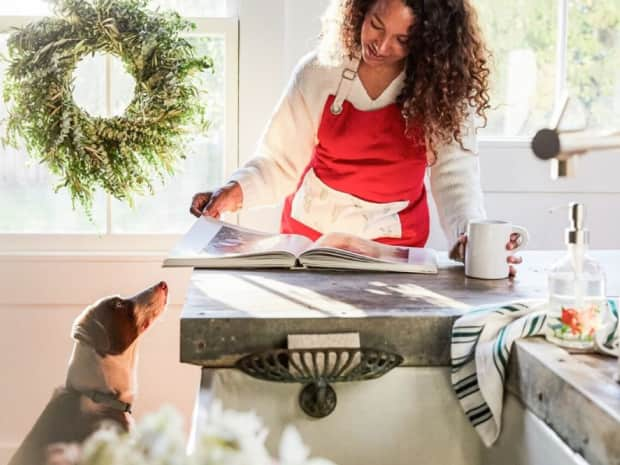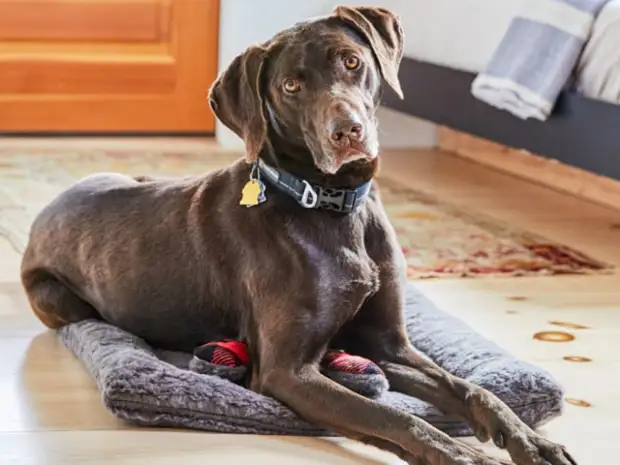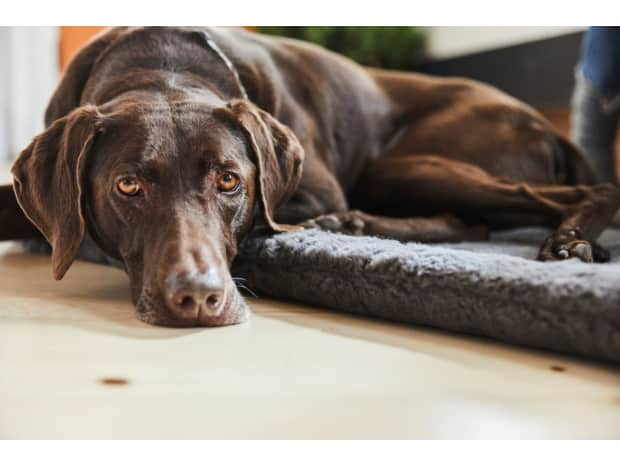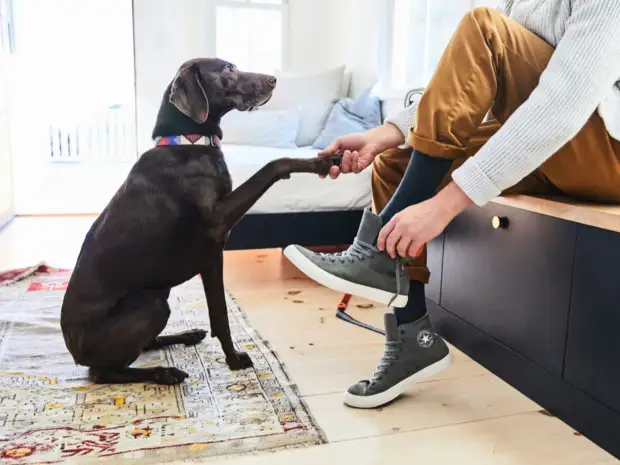
A new owner's guide to adopting a cat.
Adopting a pet is exciting, but it takes some preparation. Discover our best tips for making your new friend feel purr-fectly comfortable in our guide to cat adoption!
Read More


Last Updated: December 15, 2021
Adopting a new dog is exciting — especially when it comes to all the promises of doggy snuggles and long walks with a new member of the family. Dogs are, of course, loving and fun, but like any other family member, also require a lot of work and care.
That work and care can seem overwhelming in the early days. However, getting started on the right foot (or paw!) helps ensure a long, happy relationship for everyone.
Read on for some basic information and tips on how to get read to adopt a new dog.
It's not recommended that dogs be left outdoors without supervision. All dogs need to be taught not to go to the bathroom in the house. They also need to be taught where and when they are supposed to eliminate.
Many people use crate training as a way to housebreak their dogs and find it also helps with other areas of training. Crates give puppies and dogs their own safe space to retreat to as needed, and dogs have an instinct not to eliminate in the areas in which they sleep. So healthy dogs typically won't have accidents in their crates, unless they've been left for too long or were put in their cage without eliminating first.
The biggest rule to remember to keep your house clean is consistency. Take the dog out regularly and at regular times so they get used to the routine. Then, put them in their crates after they’ve gone out while you are away or while you are asleep.
All dogs need to be taught how to walk on a leash. Even if the dog has a fenced yard, there are times in all dogs' lives that require them to be leashed.
The best method for leash training is to start by showing the leash to the dog, and work up to attaching it to their halter or collar.
Incorporate daily leash time, even if it's just for walks around the front yard. The dog should stay next to the human as it walks. Keeping the leash loose helps them learn not to pull, and makes for a better experience for both humans and dogs.
It's important that dogs learn how to meet other people and pets and how to accept going to new places. The only way they learn is through exposure.
Well-socialized dogs typically avoid developing behavioral problems and have a much easier time when encountering other dogs, going to the vet, moving, et cetera. Proper socialization also helps dogs avoid developing phobias.
Tricks are fun, but not needed for a dog to have a healthy, happy life. However, all dogs should learn some basic commands for their safety, as well as the safety of everyone around them. These basic commands give a dog's daily life structure and help them understand what their owners want from them. Teaching a dog to drop it, back up, stay, and come is a great way to ensure their safety and that they will behave and follow orders when needed.
Proofing is often the final step in training but it's still vital. Proofing means to teach a dog that the behaviors they have been taught apply everywhere, not just at home.
The dog needs to be as well behaved when visiting a friend's home or at the dog park as well as at their own home or yard. Like socialization, exposure is key. Once the dog has achieved a basic level of training, taking them into new locations and being consistent with expectations, commands, and rewards will teach them they need to behave the same no matter where they go.
Browse some more trusted resources for in-depth guides as to how to care for and train your new dog.

Adopting a pet is exciting, but it takes some preparation. Discover our best tips for making your new friend feel purr-fectly comfortable in our guide to cat adoption!

Dogs love their chew toys — but after a while, they get pretty gross. Keep them clean naturally and easily with these helpful tips.

How do you really brush your dog’s teeth? Well, it’s not easy -- but we’ve got tips for brushing teeth and cleaning ears with the best natural pet products that actually do the job.

Your dog left you a surprise in the living room, and now you’re wondering how to clean it up. We’ve got all the tips you need to effectively get dog poop out of your carpet.